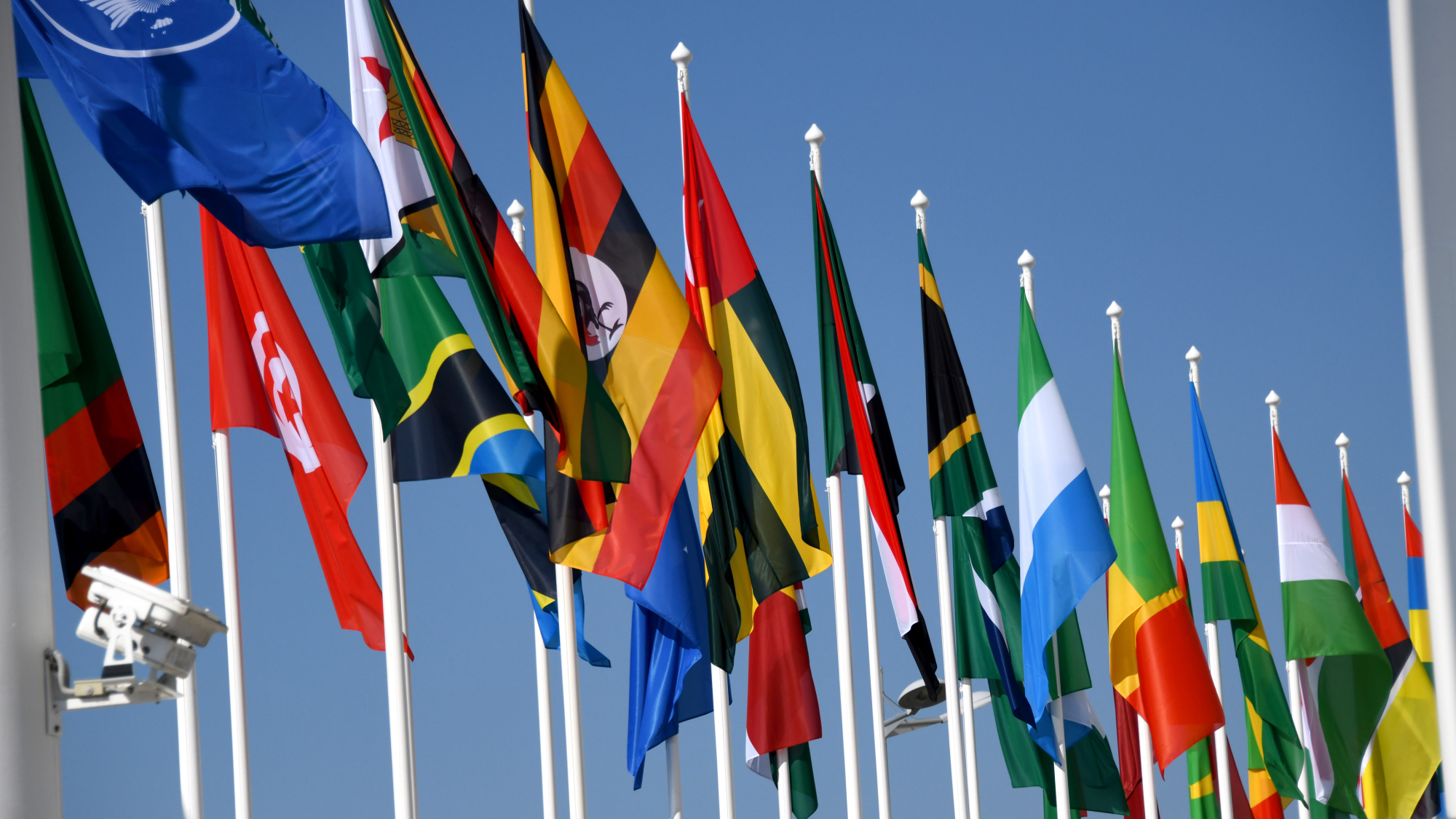
Title: Missing Black Voices and the Pan-African Ideal: Interview with Dr. Ubba Kodero
Often appearing as case studies for poverty, development, and conflict in the field of international relations, Africa is rarely depicted as a region with extensive agency. Furthermore, African and black voices represent only a small fraction of the practitioners and intellectuals studying international relations. Today, GJIA sits down with scholar Dr. Ubba Kodero to investigate this “intellectual apartheid,” the realities of pan-Africanism, and performative regionalism in Africa.
GJIA: In your work “African Voices and Black Spaces: Confronting White Man’s IR,” you argue that the field of international relations relegates African and African-centered scholarship, leading to an intellectual apartheid. Can you elaborate on that?
UK: As an African, this topic is something that is really intimate to me. I grew up in Kenya and became interested in International Affairs. I noticed early on in college that the voices of my people are missing, that Africa always finds itself present in international affairs as the site of studying poverty, underdevelopment, violence, and derelict issues of all magnitudes, with no sense of agency. It is depicted as a place acted upon by other actors and does not get to do things on its own. International relations is a study of actors and the things they do in other spaces. Yet, the 1.4 billion people of this continent, which is 17 percent of the world and projected to rise to 25 percent in the next few decades, are missing in scholarly discourse.
Even when this population is represented, they are often represented in unique case studies (e.g. civil war), not in the form of theory making. The broader concern I have is not just about the isolation of the African space and the absence of African intellectuals in scholarship—there is an absence of black scholarship in general in the field of IR. I found that in the United States, only about 7 percent of practitioners or scholars of political science are Afro-descendent or African. This 7 percent is also predominantly male. So, there is a simultaneous dual absence (of African perspectives and black scholarship) within the realm of IR. When you investigate further, you realize African scholars and black scholars have actually made significant contributions to this field. The core of the issue lies in understanding why such disparity persists.
GJIA: Building on your insight, are traditional models of IR compatible with African contexts, histories, and scholarship? How have these models changed over time?
UK: I would say no. In general, mainstream frameworks of IR remain very Eurocentric. In my work “African Voices and Black Spaces,” I explore the variable of “race” in what I call “intellectual apartheid,” examining how race is a prominent issue within IR scholarship, yet rarely acknowledged in key debates shaping the discourse. Today, scholars studying race outside the scope of “proper IR” are unlikely to tenure at R1 and elite institutions.
GJIA: In your other paper, you describe “Pan-Africanism” as an idea that has evolved from a cultural thread of resistance, including what you call a “creed of racial solidarity,” and calls for an integrated continent. To what degree has Pan-Africanism aligned with the goal to create an African federal state, and how has this ideal evolved to serve as a tool of legitimation today?
UK: I appreciate that question because it is the gist of what the paper is all about—rethinking how regimes use the African Union (AU). When we think about the AU, we usually see it as a big organization that has been successful in ending colonialism and marching toward an integrated, prosperous continent. We usually explore it from a regional level of analysis, examining how states give up power to pursue integration and the resulting “kumbaya” that benefits every actor. However, my paper looks at the realities of how these organizations are based on certain philosophies that motivate their functionalities. Regarding the AU, the philosophy is Pan-Africanism. It is the union of the African people, not only regionally, but globally—it’s the global black solidarity. Central to the operation of the AU is what I call “performative Pan-Africanism,” where states use the concept for their own gains. Every African descendent recognizes the power of racial solidarity as an expression of Pan-Africanism, but what most people don’t think about is how leaders can use this consciousness for their own short-term utility. Governments are likely to say, “We are a Pan-African country, we are in support of other Pan-African states. We are against imperialists and for the union of the continent.” Yet, collapse of sovereignty is required for the union, which is not something that all African nations are willing to concede. Therefore, it is doubtful that the AU will resemble the European Union. It is going to be “half-baked” because the political elites have co-opted the ideas of black Pan-Africanism to defend themselves, rather than committing themselves to concede the political sovereignty to integrate into something larger like the EU.
GJIA: What are some successes of the AU in promoting the interests of the broader African population?
UK: Earlier was my criticism of the AU, but it’s important to also acknowledge that the AU has been successful in ending colonialism. Thanks significantly to the AU, by 1994, almost every country in Africa had been freed from colonial rule. It has also worked to eliminate violence in the 1980s and 1990s that threatened state stability in the region. Since 2000, many African states have experienced reduced conflicts. However, western consciousness still thinks of Africa today as that of the 70s and 80s, which could not be further from the truth. The AU has also helped establish modalities of development through initiatives such as the Continental Free Trade Act aimed at unifying the continent, although challenges remain. While the establishment of central ideas has been successful, the region still struggles to fully realize the goals of Pan-Africanism and end elite entrenchment in performative regionalism.
Consider the Continental Pass initiative, which aims to facilitate easier travel across Africa for people. In reality, the ease of movement is still very elite-centric. A diplomat at the EU level can enjoy this special passport, whereas regular Africans must still pay a significant amount of money to travel in this way.
GJIA: Earlier, we have touched on how African leaders “perform” regionalism instead of aggressively encouraging it. How exactly does this performance manifest, and what is an example of a state using the AU to further its own regime?
UK: Performative regionalism is a grandiose and publicly stated objective of continental unity. One of the biggest “performers” of regionalism was Muhammed Gadaffi of Libya, whose leadership was removed as a result of the Arab Spring in 2010-2011. Gadaffi was known for going to the public and declaring statements such as, “We are going to start the United States of Africa, and I’m going to fund it. We will use a lot of resources.” He portrayed himself as a staunch advocate of continental unity, but, in reality, that was not who he was. He had meddled in the affairs of other countries, promoted dictators, promoted sectarian rebellions, and had been fascinated with Pan-Arabism before. Pan-Africanism was more of an afterthought for him. Yet, this persona that he created was quite successful. For many, even after he was ousted from office and died, he was seen as a Pan-Africanist. When you look further, however, you realize that it was Pan-Africanism for Gadaffi’s interests, not for Libya’s.
Another example of this kleptocratic model was in Equatorial Guinea, a country that hosted the African Nations Cup and has houses for continental leaders. Their gestures are basically saying that “we are Pan-Africanists, we host continental events, we have houses for all heads of state, but really, we are exploiting the natives of Equatorial Guinea for oil resources.” The real measure of Pan-Africanism should always lie in how we uplift the quality of life for Africans in real time, not in bombastic suggestions made by leaders.
GJIA: Do you have any recommendations for bridging the gap between the intellectual apartheid and promoting more African and black voices in the field of International Affairs? How could this tie into rethinking performative regionalism and the pan-African ideal that many states still have?
UK: This question encapsulates the essence of my scholarship. One question we must ask when attempting to tie these together is, what is the place of Africa in international relations? If we consider Africa as important—it is a huge part of the world after all—then we will be more interested in exploring the politics of Africa and how it works. IR is responsible for pulling these things together, but if the discipline itself is not placing a lot of serious focus on the African space, we miss the nuanced realities that shape the region. As a result, we stay confined by what we traditionally conceived as rules and laws in international affairs. One example is the assumption that regionalism is good and will work in Latin America and Africa. Yet, we are going to see how regionalism can be molded to serve the specific interests of a select few, and that is missing if you are not studying Africa in general. Unfortunately, most students in the US are missing out on this important component.
. . .
This transcript has been lightly edited for clarity and length.
Interview conducted by Ava Wong.
Dr. Ubba Kodero is Assistant Professor of Political Science and International Affairs at Morgan State University. He earned his Ph.D. from Florida International University’s Steven J. Green School of International and Public Affairs, where he specialized in international relations with a focus on the international political economy. His work has been published in e-International Relations, African Studies Quarterly, and the Journal of Global South Studies, as well as in book chapters by Palgrave Macmillan and Lynne Rienner Publishers. His research focuses on issues related to transnational blackness and the international political economy. In addition to his academic work, Dr. Kodero runs The Ubba Kodero Show on YouTube, where he discusses issues of global significance ranging from African perspectives on global issues to lectures on international affairs.
Image credit: GovernmentZA, Flickr, via CC BY-ND 2.0.
Recommended Interviews

Cruises have increasingly become a popular choice for families and solo travelers, with companies like Royal Caribbean International introducing “super-sized” ships with capacity for over seven thousand…

In March 2025, widespread protests erupted across Türkiye following the controversial arrest of former Istanbul Mayor Ekrem İmamoğlu, an action widely condemned as politically motivated and…

In this interview, GJIA sits down with Jojo Mehta, Co-Founder and Chief Executive of Stop Ecocide International, to discuss the global movement to codify ecocide as an international…